Submission
Registration
Author Area
Important Dates
Full paper submission deadline:
June 6, 2020
Acceptance Notification:
June 12, 2020
Registration deadline:
June 30, 2020
Conference Date:
October 16-18, 2020NEWS
Social Media
Workshop
+ 查看更多
1. Title:Edge Computing and Internet of Things
Summary:
As a novel computing technology closer to terminal side, edge computing brings timely decision-making and response, efficient processing of large volumes of data, edge intelligence and other benefits to internet of things (IoT), especially when it integrates artificial intelligence (AI) and cloud-edge synergy technologies. Edge computing has become an effective solution for lots of business of IoT, and promotes the application and development of IoT technology in many application fields, such as Smart City, Energy Internet, intelligent precision agriculture, and so on. However, the practical implementation and potential technologies are still in the very early stage, and there are lots of challenging issues need to be identified.
This special Workshop aims to introduce and highlight the latest developments and emerging research in Edge computing and IoT technologies and applications.
Keywords:
Edge Computing, Internet of Things, Artificial Intelligence, Cloud-Edge Synergy
Chair:
Dr. Sujie Shao, Beijing University of Posts and Telecommunications, China
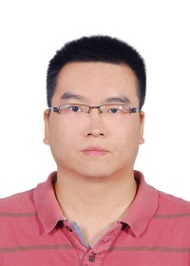
Sujie Shao received the Ph.D. degree from Beijing University of Posts and Telecommunication, in 2015, Beijing, China. He is currently a lecturer in State Key Laboratory of Networking and Switching Technology, Beijing University of Posts and Telecommunication. His research interests include edge computing, Internet of Things, Smart Grids and communication network management.
A/Prof. Shaoyong Guo, Beijing University of Posts and Telecommunications, China
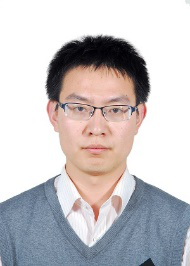
Shaoyong Guo received the Ph.D. degree from Beijing University of Posts and Telecommunication, in 2013, Beijing, China. He is currently an associated professor in State Key Laboratory of Networking and Switching Technology, Beijing University of Posts and Telecommunication. His research interests include Blockchain, Internet of Things, Energy Internet.
Dr. Wencui Li, State Grid Henan Electric Power Co., Ltd, China

Wencui Li received the Ph.D. degree from Changchun Institute of Optics, Fine Mechanics and Physics, Chinese Academy of Sciences. She is currently a senior engineer in Information and Communication Company of State Grid Henan Electric Power Co., Ltd. Her research interests include electric power communication, network management, Internet of Things.
2. Title:AI and ML Technologies
Summary:
Artificial Intelligence (AI) and Machine Learning (ML) have been successfully applied to various perceptual domains, including computer vision, natural language processing, and voice recognition. In addition, ML techniques are showing impressive results in new domains such as medicine, finance, astronomy, and etc. The workshop aims to gather leading researchers from academics and industry to present their recent research achievements and share their experiences in robot designing, networking, and safety of AI. Firstly, AI is concerned with computing and learning technologies that allow robots to see, hear, talk, think, learn, and solve problems. So, special attention should be given to design human robot hybrid intelligent unmanned systems and achieve the high accurate performance for the human robot interactions. This includes autonomous control, learning control, demonstrations, neural network adaptations, iterative learning, deep learning, reinforcement learning, brain-like intelligence, dynamic programming and human robot integration. Secondly, AI/ML techniques could be successfully applied to simplify network management. On the one hand, the scientific innovations in the area of AI/ML have the potential to simplify network management. On the other hand, recent advancements in the area of networking technology have the potential to improve the performance of AI and ML systems. Thirdly, safety in AI should be an important design principle. We must bridge short-term with long-term issues, idealistic with pragmatic solutions, and industry with academia, to really build, evaluate, deploy, operate and maintain AI-based systems that are truly safe.
Keywords:
Artificial Intelligence; Machine Learning; Robots; Safety; Networking
Chair:
Dr. Siya XU, Beijing University of Posts and Telecommunications, China.

Siya Xu, received her Ph.D. degree in communication and information system from Beijing University of Posts and Telecommunications. She is currently a lecturer in State Key Laboratory of Networking and Switching Technology of Beijing University of Posts and Telecommunications. She has published more than 30 EI/SCI index papers in Network Management, AI, SDN, and Edge Computing.
Prof. Feng Qi, Beijing University of Posts and Telecommunications, China.
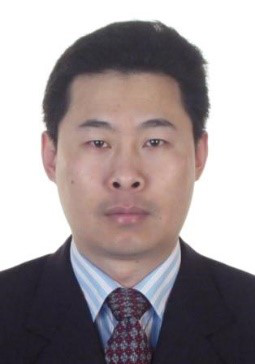
Feng Qi, is a Professor of Beijing University of Posts and Telecommunications. His research interests include communications software, network management, and business intelligence. He has won 2 National Science and Technology Progress Awards. He has also written more than 10 ITU-T international standards and Industry Standards. He is served as vice chairman of the ITU-T Study Group 4 and Study Group 12.
Dr. Feifei Zhai, Sogou, China.
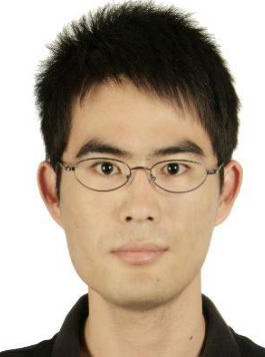
Feifei Zhai, received his Ph.D. degree from the Chinese Academy of Sciences, and obtained the Excellent Doctoral Thesis Award from Chinese Association for Artificial Intelligence. He completed his postdoctoral research at the City University of New York and served as Research Staff Member at IBM Watson. He is currently the Senior Researcher of Sogou.His research focuses on Machine Translation and Natural Language Processing, and has published many research papers in journals and conferences including ACL, TASLP, TACL, EMNLP, AAAI, COLING, etc.
3. Title:Embedded Computing and Information Security
Summary:Embedded computing systems are designed to a wide range of competing criteria that have given rise to several different fields. On the one hand, they must perform increasingly complex tasks. On the other hand, embedded systems must meet tight cost, power consumption, and performance constraints. Information security is the practice of preventing unauthorized access, use, disclosure, disruption, modification, inspection, recording or destruction of information. The information or data may take any form, e.g. electronic or physical. Information security’s primary focus is the balanced protection of the confidentiality, integrity and availability of data while maintaining a focus on efficient policy implementation, all without hampering organization productivity. Machine Learning is an idea to learn from examples and experience, without being explicitly programmed. Instead of writing code, you feed data to the generic algorithm, and it builds logic based on the data given.This special Workshop aims to present and highlight the latest developments and emerging research of Embedded Computing, Cryptography Algorithms, Machine Learning with applications in developing all aspects of image, video, music, texture et.al..
Keywords:
Embedded Computing; Cryptography; Information Security; Machine Learning; Neural Network;
Chair:
Dr.Hui-Huang Zhao, Hengyang Normal University, China
 Dr.Hui-Huang Zhao received his Ph.D. degree in 2010 from XiDian University. He was a Sponsored Researcher in the School of Computer Science and Informatics, Cardiff University. Now he is an Associate Professor in the College of Computer Science and Technology, Hengyang Normal University. His main research interests include Image Processing, Compressive Sensing and Machine Learning.Homepage: http://huihuangzhao.github.io/
Dr.Hui-Huang Zhao received his Ph.D. degree in 2010 from XiDian University. He was a Sponsored Researcher in the School of Computer Science and Informatics, Cardiff University. Now he is an Associate Professor in the College of Computer Science and Technology, Hengyang Normal University. His main research interests include Image Processing, Compressive Sensing and Machine Learning.Homepage: http://huihuangzhao.github.io/
 Dr.Hui-Huang Zhao received his Ph.D. degree in 2010 from XiDian University. He was a Sponsored Researcher in the School of Computer Science and Informatics, Cardiff University. Now he is an Associate Professor in the College of Computer Science and Technology, Hengyang Normal University. His main research interests include Image Processing, Compressive Sensing and Machine Learning.Homepage: http://huihuangzhao.github.io/
Dr.Hui-Huang Zhao received his Ph.D. degree in 2010 from XiDian University. He was a Sponsored Researcher in the School of Computer Science and Informatics, Cardiff University. Now he is an Associate Professor in the College of Computer Science and Technology, Hengyang Normal University. His main research interests include Image Processing, Compressive Sensing and Machine Learning.Homepage: http://huihuangzhao.github.io/Prof. Bin Fu, University of Texas Rio Grande Valley, USA.
P rof. Bin Fu received his Ph.D. degree in 1998 from Yale University. He is a Professor in the Department of Computer Science, University of Texas Rio Grande Valley. His main research interests include Algorithms in Networking and Bioinformatics, Computational Complexity Theory.Homepage: https://faculty.utrgv.edu/bin.fu/
rof. Bin Fu received his Ph.D. degree in 1998 from Yale University. He is a Professor in the Department of Computer Science, University of Texas Rio Grande Valley. His main research interests include Algorithms in Networking and Bioinformatics, Computational Complexity Theory.Homepage: https://faculty.utrgv.edu/bin.fu/
 rof. Bin Fu received his Ph.D. degree in 1998 from Yale University. He is a Professor in the Department of Computer Science, University of Texas Rio Grande Valley. His main research interests include Algorithms in Networking and Bioinformatics, Computational Complexity Theory.Homepage: https://faculty.utrgv.edu/bin.fu/
rof. Bin Fu received his Ph.D. degree in 1998 from Yale University. He is a Professor in the Department of Computer Science, University of Texas Rio Grande Valley. His main research interests include Algorithms in Networking and Bioinformatics, Computational Complexity Theory.Homepage: https://faculty.utrgv.edu/bin.fu/
4. Title:Renewable energy Internet
Summary:Energy is the basis for the survival and development of modern society. In order to cope with the energy crisis, renewable energy such as solar energy, wind energy, and biological energy is widely researched. Renewable energy has inexhaustible, clean and environmentally friendly advantages, while it is geographically dispersed, production discontinuity, random, volatility and uncontrollable.The centralized and unified management of traditional power networks is difficult to adapt to the large-scale use of renewable energy.
Energy Internet is the combination of information technology and renewable energy. It comprehensively uses advanced power electronics, information and intelligent management technology to form a large number of distributed energy harvesting devices, storage devices and various types of loads, which provides a feasible technical solution to the problem of efficient use ofrenewable energy. This special Workshop aims to discuss and present the new findings on various key technologies of Energy Internet to gradually evolve the traditional power grid to Energy Internet.
Keywords:
Renewable energy; Complex network; Power network; Information technique
Chair:
Professor Xi-Zheng Zhang, Hunan Institute of Engineering, China
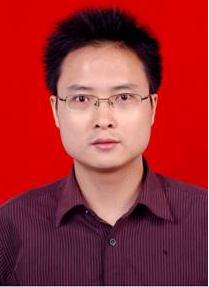 Prof. Zhang received his B.s.c, M.s.c, and Ph.D. degreefrom Hunan Universityin 2000, 2003, and 2010, respectively. Now he is an Professor in the School of Electrical and Information Engineering, Hunan Institute of Engineering. His main research interests include Renewable Energy, Intelligent Optimization,and Control System.
Prof. Zhang received his B.s.c, M.s.c, and Ph.D. degreefrom Hunan Universityin 2000, 2003, and 2010, respectively. Now he is an Professor in the School of Electrical and Information Engineering, Hunan Institute of Engineering. His main research interests include Renewable Energy, Intelligent Optimization,and Control System.5. Title:Algorithms and Applications of AI
Summary:
Artificial intelligence technology can make a computer think like a human. The AI defined by Alan Turing is: the science that enables computers to complete tasks that require human intelligence. Artificial intelligence has the ability of perception, understanding and decision-making. Data, algorithms, and computing power are the three elements of artificial intelligence, and learning ability is its essence. Artificial intelligence algorithms include decision trees, random forests, logistic regression, SVM, Naive Bayes, k-Nearest Neighbor, k-means, Artificial Neural Networks, Markov, etc. Artificial intelligence has been widely used in the fields of knowledge representation and reasoning, automatic programming, machine learning, natural language processing and robot vision. This special Workshop aims to introduce and discuss the improved algorithms of artificial intelligence and the application of artificial intelligence.
Keywords:
Deep learning; Knowledge Representation; Neural Network; Algorithms; Image segmentation
Chair:
Dr. Guihua Liu, Weifang Medical College,China
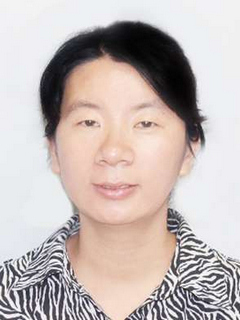
Guihua Liu received the Master of computer software and theory from Shandong Normal University ,in 2007,Shandong,China.She is currently a Lecturer at Weifang Medical College.Her research interests include Deep Learning, Knowledge Representation and Medical Image Segmentation.
Prof. Zhou Lianbing,Dean of the Artificial Intelligence College of Dongying Vocational Institute
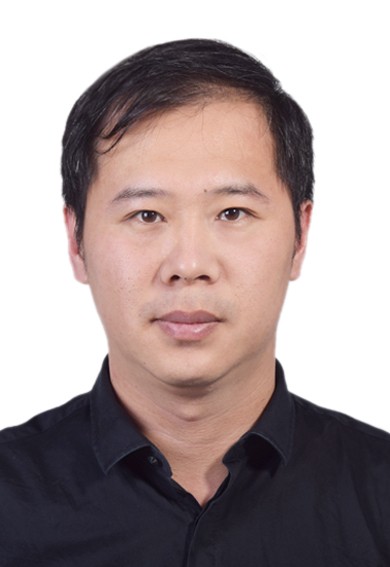 Zhou Lianbing, Master, Associate Professor, Dean of the Artificial Intelligence College of Dongying Vocational Institute, Yellow River Delta Scholar Distinguished Expert,Famous Teacher of Shandong Province, Young and Middle-aged Experts with Outstanding Contributions in Shandong Province, National Model Teacher, Won the Outstanding Teacher Award of Huangyanpei Vocational Education Award and was appointed as Shandong Smart Home Association Deputy Director of Industry-Education Integration Professional Committee, Secretary General of Artificial Intelligence Vocational Education Committee of Shandong Association for Artificial Intelligence.
Zhou Lianbing, Master, Associate Professor, Dean of the Artificial Intelligence College of Dongying Vocational Institute, Yellow River Delta Scholar Distinguished Expert,Famous Teacher of Shandong Province, Young and Middle-aged Experts with Outstanding Contributions in Shandong Province, National Model Teacher, Won the Outstanding Teacher Award of Huangyanpei Vocational Education Award and was appointed as Shandong Smart Home Association Deputy Director of Industry-Education Integration Professional Committee, Secretary General of Artificial Intelligence Vocational Education Committee of Shandong Association for Artificial Intelligence.Prof. Xuedou Yu, School of Information Management, Dezhou University.
Xuedou Yu 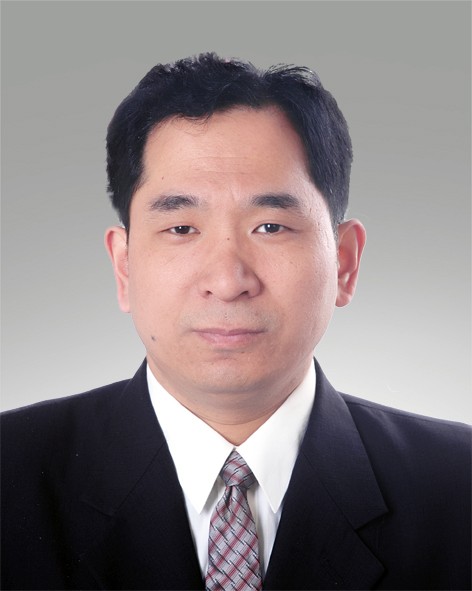 (August 1973), male, master, associate professor.In 1998, he graduated from Shandong Normal University with a bachelor of science degree in computer science and education.In 2007, he graduated from Shandong University of Science and Technology, majoring in computer software and theory, with a master's degree in engineering.Currently, he is the deputy dean of the school of information management, dezhou university.In 2018, he was selected as a member of the poverty alleviation team dispatched to villages in the province..
(August 1973), male, master, associate professor.In 1998, he graduated from Shandong Normal University with a bachelor of science degree in computer science and education.In 2007, he graduated from Shandong University of Science and Technology, majoring in computer software and theory, with a master's degree in engineering.Currently, he is the deputy dean of the school of information management, dezhou university.In 2018, he was selected as a member of the poverty alleviation team dispatched to villages in the province..
 (August 1973), male, master, associate professor.In 1998, he graduated from Shandong Normal University with a bachelor of science degree in computer science and education.In 2007, he graduated from Shandong University of Science and Technology, majoring in computer software and theory, with a master's degree in engineering.Currently, he is the deputy dean of the school of information management, dezhou university.In 2018, he was selected as a member of the poverty alleviation team dispatched to villages in the province..
(August 1973), male, master, associate professor.In 1998, he graduated from Shandong Normal University with a bachelor of science degree in computer science and education.In 2007, he graduated from Shandong University of Science and Technology, majoring in computer software and theory, with a master's degree in engineering.Currently, he is the deputy dean of the school of information management, dezhou university.In 2018, he was selected as a member of the poverty alleviation team dispatched to villages in the province..In recent years, he has presided over one project of provincial natural science foundation, participated in many projects of national natural science foundation and provincial level, written more than 30 papers, participated in the compilation of 5 textbooks, guided students to publish more than 10 papers, and guided students to win 6 national scientific and technological innovation awards and many provincial and ministerial awards.Designed 6 sets of management software for enterprises and institutions.
6. Title:Applications and Techniques of Machine Learning, Deep Learning and Optimization
Summary:
In recent years, machine learning techniques (e.g. support vector machine (SVM), decision tree, random forest, etc.) and deep learning techniques (e.g. convolutional neural network (CNN), recurrent neural network (RNN), long-short term memory (LSTM), etc.) have been popularly applied into image recognition and time-series inferences for intelligent transportation systems (ITS). For instance, advanced driver assistance systems and autonomous cars have been developed based on machine learning and deep learning techniques to perform forward collision warning, blind spot monitoring, lane departure warning systems, traffic sign recognition, traffic safety, infrastructure management and congestion, and so on. Furthermore, several optimization techniques (e.g. gradient descent algorithm, Adam optimization algorithm, particle swarm optimization algorithm, etc.) have been proposed to support deep learning algorithms in finding faster solutions. For example, the gradient descent method is a popular optimization technique to quickly seek the optimized weight sets and filters of CNN for image recognition.
The aim of this workshop is to focus on both original research and review articles on various disciplines of applications, particularly machine learning, deep learning, and optimization techniques for agricultural sciences, biology and biochemistry, chemistry, clinical medicine, economics and business, engineering, environment and ecology, geosciences, immunology, materials sciences, microbiology, molecular biology and genetics, neurosciences and behavior, pharmacology and toxicology, physics, plant and animal sciences, psychiatry and psychology, social sciences, and space sciences.
The aim of this workshop is to focus on both original research and review articles on various disciplines of applications, particularly machine learning, deep learning, and optimization techniques for agricultural sciences, biology and biochemistry, chemistry, clinical medicine, economics and business, engineering, environment and ecology, geosciences, immunology, materials sciences, microbiology, molecular biology and genetics, neurosciences and behavior, pharmacology and toxicology, physics, plant and animal sciences, psychiatry and psychology, social sciences, and space sciences.
Keywords:
Machine learning; Deep learning; Optimization techniques
Chair:
Prof. Cheng Shi, Xi'an University of Technology
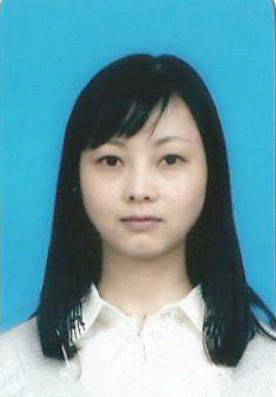
Cheng Shi received the B.S. degree from the Xi’an University of Architecture and Technology, China, in 2009, and the M.S. and Ph.D. degrees from Xidian University, China, in 2012 and 2016, respectively. In 2018, she joined the University of Macau, China, as a Postdoctoral Research Fellow. She is currently working as an Associate Professor with the School of Computer Science and Engineering, Xi’an University of Technology. Her contributions have been published in IEEE Transactions on Geoscience and Remote Sensing, IEEE Transactions on Multimedia, etc. Her research interests include deep learning, image processing, and pattern recognition.
Prof. Chi-Hua Chen
,Fuzhou University
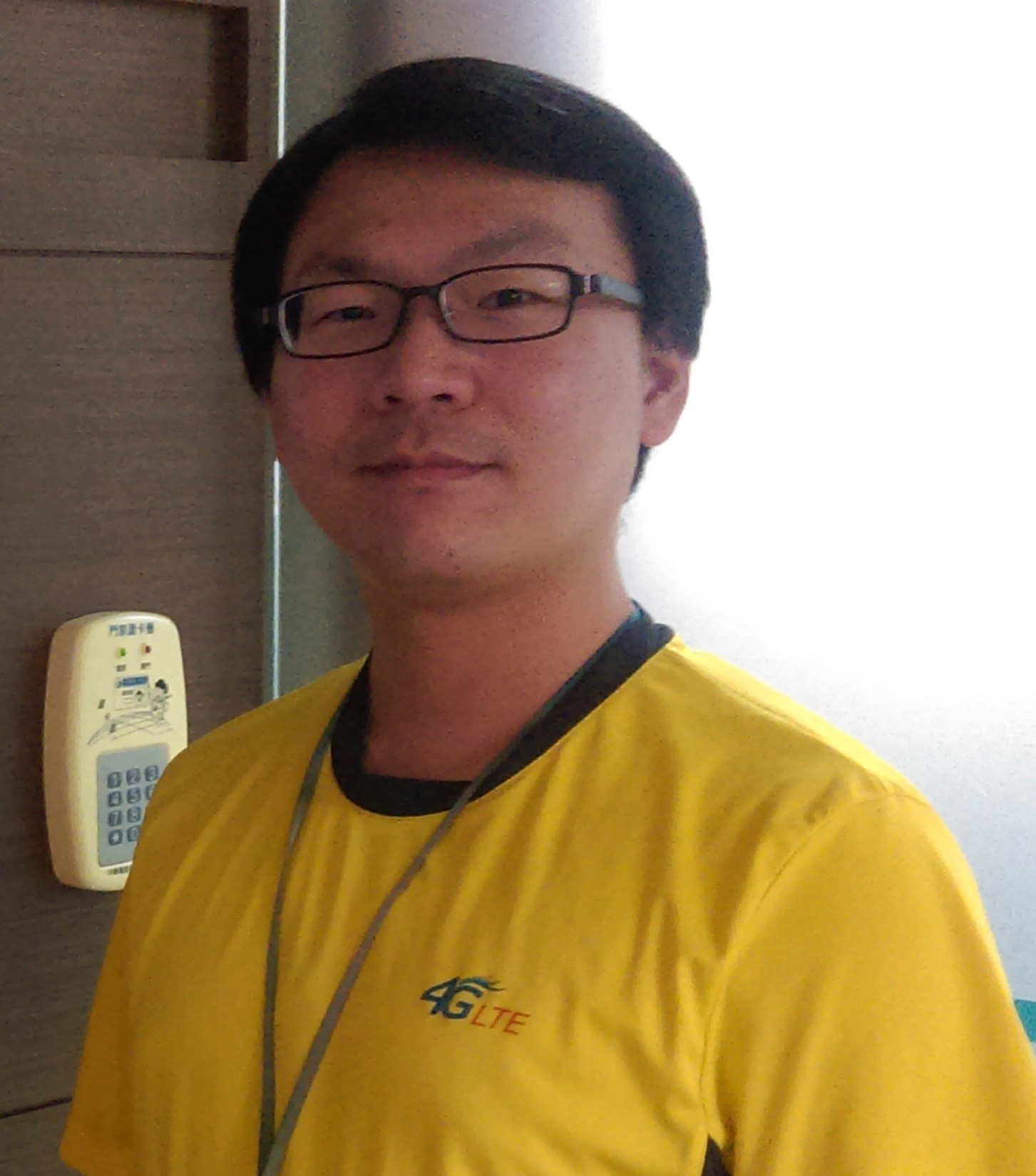 Chi-Hua Chen serves as a distinguished professor at Fuzhou University and a chair professor at Dalian Maritime University in China. He has published over 270 academic articles and patents. His contributions have been published in IEEE Internet of Things Journal, WWW (CCF Rank A), etc. His recent research interests include Internet of things, machine learning and deep learning, big data, cellular networks, and intelligent transportation systems.
Chi-Hua Chen serves as a distinguished professor at Fuzhou University and a chair professor at Dalian Maritime University in China. He has published over 270 academic articles and patents. His contributions have been published in IEEE Internet of Things Journal, WWW (CCF Rank A), etc. His recent research interests include Internet of things, machine learning and deep learning, big data, cellular networks, and intelligent transportation systems. Prof. Genggeng Liu ,Fuzhou University
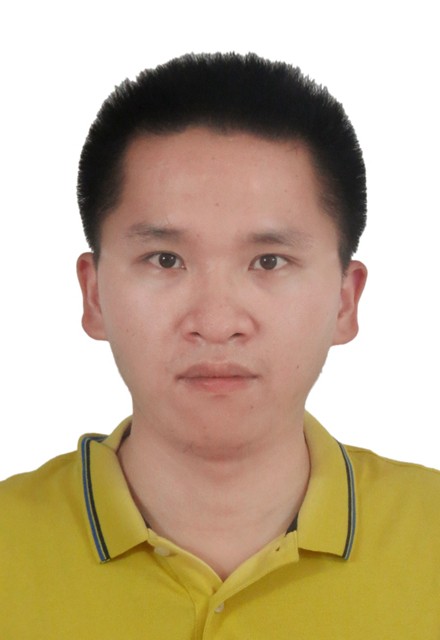 Genggeng Liu received the B.S. degree in computer science and the Ph.D. degree in applied mathematics from Fuzhou University, Fuzhou, China, in 2009 and 2015, respectively. He is currently an Associate Professor with the College of Mathematics and Computer Science, Fuzhou University. His contributions have been published in IEEE Transactions on Cybernetics, IEEE Transactions on Industrial Informatics, ACM Transactions on Design Automation of Electronic Systems, etc. His research interests include computational intelligence and very large scale integration physical design.
Genggeng Liu received the B.S. degree in computer science and the Ph.D. degree in applied mathematics from Fuzhou University, Fuzhou, China, in 2009 and 2015, respectively. He is currently an Associate Professor with the College of Mathematics and Computer Science, Fuzhou University. His contributions have been published in IEEE Transactions on Cybernetics, IEEE Transactions on Industrial Informatics, ACM Transactions on Design Automation of Electronic Systems, etc. His research interests include computational intelligence and very large scale integration physical design.To be continued










